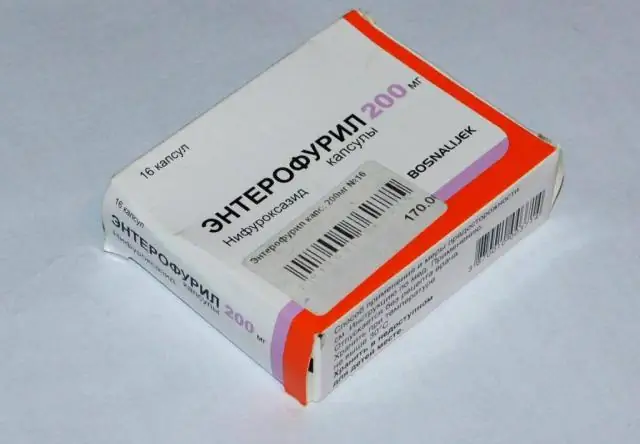Cardionat
Cardionat: instructions for use and reviews
- 1. Release form and composition
- 2. Pharmacological properties
- 3. Indications for use
- 4. Contraindications
- 5. Method of application and dosage
- 6. Side effects
- 7. Overdose
- 8. Special instructions
- 9. Application during pregnancy and lactation
- 10. Use in childhood
- 11. In case of impaired renal function
- 12. For violations of liver function
- 13. Drug interactions
- 14. Analogs
- 15. Terms and conditions of storage
- 16. Terms of dispensing from pharmacies
- 17. Reviews
- 18. Price in pharmacies
Latin name: Cardionate
ATX code: C01EB22
Active ingredient: meldonium (meldonium)
Manufacturer: capsules - ZAO Skopinsky Pharmaceutical Plant (Russia), ZAO MAKIZ-PHARMA (Russia); solution - Federal State Unitary Enterprise "Moscow Endocrine Plant" (Russia)
Description and photo update: 28.11.2018
Prices in pharmacies: from 147 rubles.
Buy

Cardionate is a metabolic drug with a cardioprotective effect.
Release form and composition
- capsules: hard gelatinous, 250 mg each - size No. 1, white, 500 mg each - size No. 00, with a pink lid and a white body; the contents of the capsules are almost white or white crystalline powder, hygroscopic, with a slight odor, clumping is possible (250 mg - 10 pieces in a blister strip made of PVC film and aluminum foil or 100 pieces in a polymer can, 2, 4 or 10 each packages or 1 can in a cardboard box; 500 mg - 10 pcs. in a blister strip, 2 or 4 packages in a cardboard box);
- solution for injection: colorless transparent liquid (5 ml in an ampoule of neutral glass, 5 pcs. in a blister strip made of polyvinyl chloride film, in a cardboard box 1 or 2 packs with or without an ampoule knife if there is a point or ring of break on the ampoule).
Each pack also contains instructions for the use of Cardionat.
1 capsule contains:
- active substance: meldonium dihydrate [trimethylhydrazinium propionate dihydrate (in terms of dihydrate without adsorbed moisture)] - 250 or 500 mg, which corresponds to the content of meldonium in the amount of 200.5 mg and 401 mg, respectively;
- additional components: colloidal silicon dioxide (aerosil), potato starch, calcium stearate;
- capsule shell: titanium dioxide, gelatin, azorubin dye (optional for 500 mg).
1 ml of solution contains:
- active substance: meldonium dihydrate [trimethylhydrazinium propionate dihydrate (in terms of dihydrate without adsorbed moisture)] - 100 mg, which corresponds to the content of meldonium in the amount of 80.2 mg;
- additional component: water for injection.
Pharmacological properties
Pharmacodynamics
Meldonium belongs to the structural analogs of gamma-butyrobetaine, improves metabolism and tissue energy supply. The substance inhibits the activity of gamma-butyrobetaine hydroxylase, which causes a decrease in carnitine production, a decrease in the transport of long-chain fatty acids through the cell walls and counteracts the accumulation of activated forms of unoxidized fatty acids in cells, which are derivatives of acyl coenzyme A and acyl carnitine. Due to a decrease in carnitine levels, gamma-butyrobetaine is intensively produced, which exhibits a vasodilating effect.
In ischemia, the active substance ensures the restoration of equilibrium in the processes of oxygen delivery and its intracellular consumption, as well as the activation of glycolysis, which proceeds without additional oxygen consumption; prevents disruption of transport and a decrease in the concentration of adenosine triphosphate (ATP). The mechanism of action of the substance determines the variety of its pharmacological effects: symptoms of physical and mental stress are reduced, efficiency is increased, immunity is enhanced, and cardioprotective action is carried out.
Against the background of acute ischemic damage to the myocardium, meldonium inhibits the emergence of a necrotic zone, reduces the duration of rehabilitation. In heart failure, it helps to increase myocardial contractility and increase exercise tolerance, thereby reducing the frequency of angina attacks. In the case of ischemic disorders of cerebral circulation in acute / chronic form in the ischemic focus, the active substance improves blood circulation, contributes to its redistribution in favor of the ischemic area.
Also, Cardionat is characterized by a tonic effect on the central nervous system, eliminates functional disorders of the autonomic nervous system with withdrawal syndrome in patients with chronic alcoholism. Demonstrates a positive result in the treatment of vascular and dystrophic changes in the fundus.
Pharmacokinetics
After oral administration, the drug is rapidly absorbed from the gastrointestinal tract (GIT), bioavailability is 78%. The maximum concentration (C max) of meldonium in the blood plasma is observed after 1–2 hours.
After intravenous (i / v) administration of C max of the substance in the blood plasma is observed immediately after its administration, there are no data on the bioavailability of the agent after intramuscular (i / m) administration.
As a result of the metabolic transformation of meldonium in the body, two main metabolites are formed, which are excreted by the kidneys. The half-life depends on the dose used and can vary from 3 to 6 hours.
Indications for use
Cardionat is recommended for use for the treatment of the following diseases (as part of complex therapy):
- ischemic heart disease (CHD), including angina pectoris and myocardial infarction - for solution, angina pectoris - for capsules; cardialgia against the background of myocardial dystrophy of the dyshormonal type, chronic heart failure (CHF);
- disorders of cerebral circulation, including cerebrovascular insufficiency (for capsules - in a chronic form), ischemic stroke;
- alcohol withdrawal syndrome.
The Cardionat solution is additionally indicated for treatment as part of the complex therapy of the following ophthalmic lesions (only for parabulbar administration):
- acute circulatory disorders in the retina;
- thrombosis of the central retinal vein and its branches;
- hemophthalmos and retinal hemorrhages of various origins;
- retinopathy of various etiologies (including diabetic and hypertensive form).
Both dosage forms of Cardionat are also recommended for use with reduced performance, mental and physical (including athletes) overload.
Contraindications
Absolute:
- increased intracranial pressure (against the background of impaired venous outflow and intracranial tumors);
- age up to 18 years;
- pregnancy and lactation;
- hypersensitivity to any of the constituents of the drug.
With extreme caution, it is required to prescribe Cardionat for liver and / or kidney diseases (for capsules - in a chronic form).
Cardionat, instructions for use: method and dosage
It is recommended to use Cardionat in the first half of the day, since during the period of therapy the development of an exciting effect is possible.
Injection
Recommended dosage regimen (as part of complex therapy):
- CHF: intravenous 5–10 ml of solution (500–1000 mg) once a day, course - 10–14 days, then the patient is transferred to oral administration of the drug;
- angina pectoris, myocardial infarction: intravenous 5–10 ml of solution (500–1000 mg) once a day, followed by transfer to taking Cardionat capsules;
- cardialgia with dyshormonal myocardial dystrophy: intravenous 5-10 ml of solution (500-1000 mg) 1 time per day or intramuscularly 5 ml (500 mg) 1-2 times a day, course - 10-14 days, followed by switching to taking capsules;
- violation of cerebral circulation: acute phase - in / in 5 ml of solution (500 mg) once a day, course - 10 days; chronic cerebral circulation disorders - intramuscularly, 5 ml of solution 1 time per day, course - 10-14 days; in acute and chronic course of the disease, it is possible to switch to oral administration;
- alcohol withdrawal syndrome: IV, 5 ml of solution (500 mg) 2 times a day, course - 7-10 days;
- retinal dystrophy and vascular pathology of the fundus: parabulbar 0.5 ml of solution, course - 10 days.
Capsules
Capsules Cardionat should be swallowed whole with water without opening or chewing.
Recommended dosage regimen (as part of complex therapy):
- IHD (exertional angina), CHF: 500-1000 mg per day in 1 or 2 doses, course - from 28 to 42 days;
- cardialgia accompanying dyshormonal myocardial dystrophy: 250 mg 2 times a day, course of treatment - 12 days;
- violation of cerebral circulation: ischemic stroke - 500-1000 mg per day in 1 or 2 doses, after using Cardionat in the form of a solution; the general course of therapy is 28–42 days; chronic cerebrovascular insufficiency - 500 mg per day, course - 14-21 days; as prescribed by the attending physician, it is possible to carry out repeated courses of therapy 2-3 times a year;
- withdrawal symptoms in chronic alcoholism: 500 mg 4 times a day, course - 7-10 days.
Athletes with intense loads are recommended to take Cardionat at a dose of 500–1000 mg 2 times a day before training, the course is 14–21 days in the preparatory period of training, and 10–14 days during the competition.
With physical and mental overload, reduced performance, both dosage forms of Cardionat are prescribed in a dose of 500 mg, capsules - 2 times a day, a solution - i / v 1 time a day. The course is 10-14 days, if necessary, a second course is allowed after 14-21 days.
Side effects
- nervous system: agitation;
- cardiovascular system: decrease / increase in blood pressure (BP), tachycardia;
- allergic reactions: rash, swelling, itching, redness of the skin;
- digestive tract: dyspeptic symptoms;
- others: general weakness, eosinophilia.
Overdose
In case of an overdose of Cardionat, the appearance of reactions such as headache, general weakness, dizziness, decreased blood pressure, tachycardia may occur. Treatment for this condition is prescribed symptomatic.
special instructions
Based on the results of many years of experience in therapy in cardiological departments of unstable angina pectoris and acute myocardial infarction, it can be argued that meldonium does not belong to the first-line drugs for acute coronary syndrome, and its use is not vital.
Influence on the ability to drive vehicles and complex mechanisms
There is no information on the negative effect of meldonium on the ability to drive a car and other complex equipment.
Application during pregnancy and lactation
There is no data to support the safety of using the metabolic agent during pregnancy. To avoid potential negative effects on the fetus, Cardionat is not used in pregnant women.
It is unknown whether meldonium is excreted in breast milk. If it is necessary to prescribe Cardionat during lactation, it is required to stop breastfeeding.
Pediatric use
For patients under 18 years of age, the use of Cardionat is contraindicated due to the lack of research on the use of this drug in children and adolescents.
With impaired renal function
In the presence of kidney disease (in chronic form - for capsules) Cardionat is recommended to be used with caution, especially with a long course of treatment.
For violations of liver function
In the presence of liver disease (in chronic form - for capsules) Cardionat should be used with caution, especially with a long course of therapy.
Drug interactions
- antianginal drugs, anticoagulants, antiarrhythmic drugs, antiplatelet agents, bronchodilators, diuretics - these combinations are acceptable;
- cardiac glycosides, some antihypertensive drugs, coronary dilating drugs - there is an increase in the therapeutic effect of these drugs;
- nifedipine, nitroglycerin, alpha-blockers, antihypertensive drugs, peripheral vasodilators - the risk of arterial hypotension and moderate tachycardia is aggravated; these combinations require caution.
Analogs
The analogues of Cardionat are: Vazomag, Idrinol, Meldonium, Angiocardil, Meldonium-Binergiya, Meldoniy-Eskom, Meldonium Organics, Meldonium-SOLOpharm, Melfor, Mildronat.
Terms and conditions of storage
Store out of the reach of children at a temperature not exceeding 25 ° C.
The shelf life is 3 years.
Terms of dispensing from pharmacies
Dispensed by prescription.
Reviews about Cardionat
Reviews about Cardionat are mostly positive. Patients note its effectiveness in IHD, CHF, cerebrovascular accidents (as part of complex therapy), excessive mental and physical stress. The drug, according to reviews, helps to maintain the vital activity of the body at the proper level, provides athletes with a quick recovery after training. According to patients, both forms of Cardionat improve the general condition, increase efficiency, promote a surge of strength, and protect the heart from overload.
The disadvantage of a metabolic agent is considered by many to be its stimulating effect, therefore it is recommended to use Cardionat only in the first half of the day.
Price for Cardionat in pharmacies
The price for Cardionat can be:
- solution for injections 100 mg / ml (ampoules of 5 ml) - 220-289 rubles per package containing 10 ampoules;
- capsules 250 mg - 175–216 rubles per pack containing 40 capsules.
Cardionat: prices in online pharmacies
|
Drug name Price Pharmacy |
|
Cardionat 100 mg / ml solution for injection 5 ml 10 pcs. 147 RUB Buy |
|
Cardionat 250 mg capsule 40 pcs. 155 RUB Buy |
|
Cardionat capsules 250mg 40 pcs. 197 RUB Buy |
|
Cardionate solution for in. 100mg / ml 5ml 10 pcs. 205 RUB Buy |

Maria Kulkes Medical journalist About the author
Education: First Moscow State Medical University named after I. M. Sechenov, specialty "General Medicine".
Information about the drug is generalized, provided for informational purposes only and does not replace the official instructions. Self-medication is hazardous to health!







